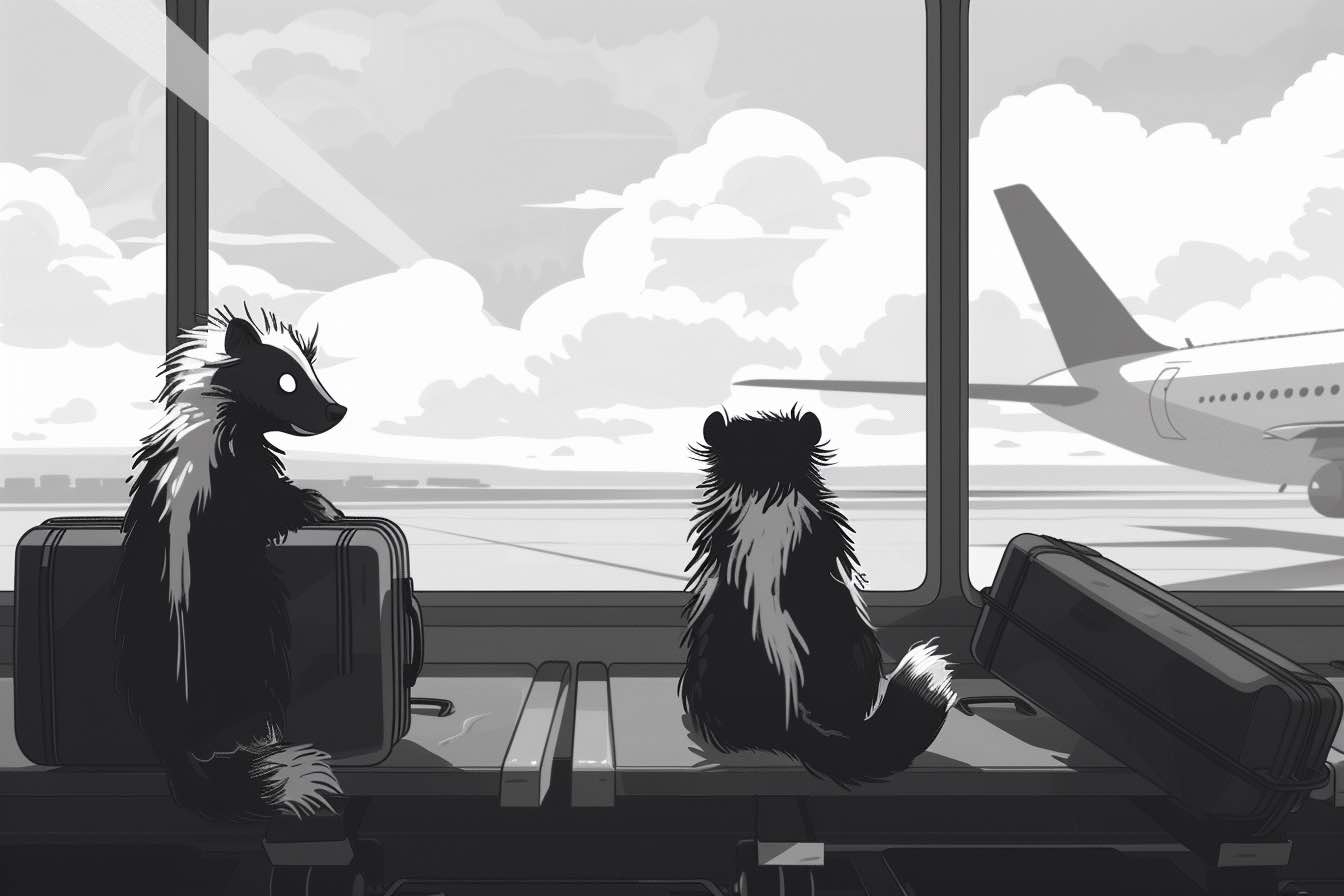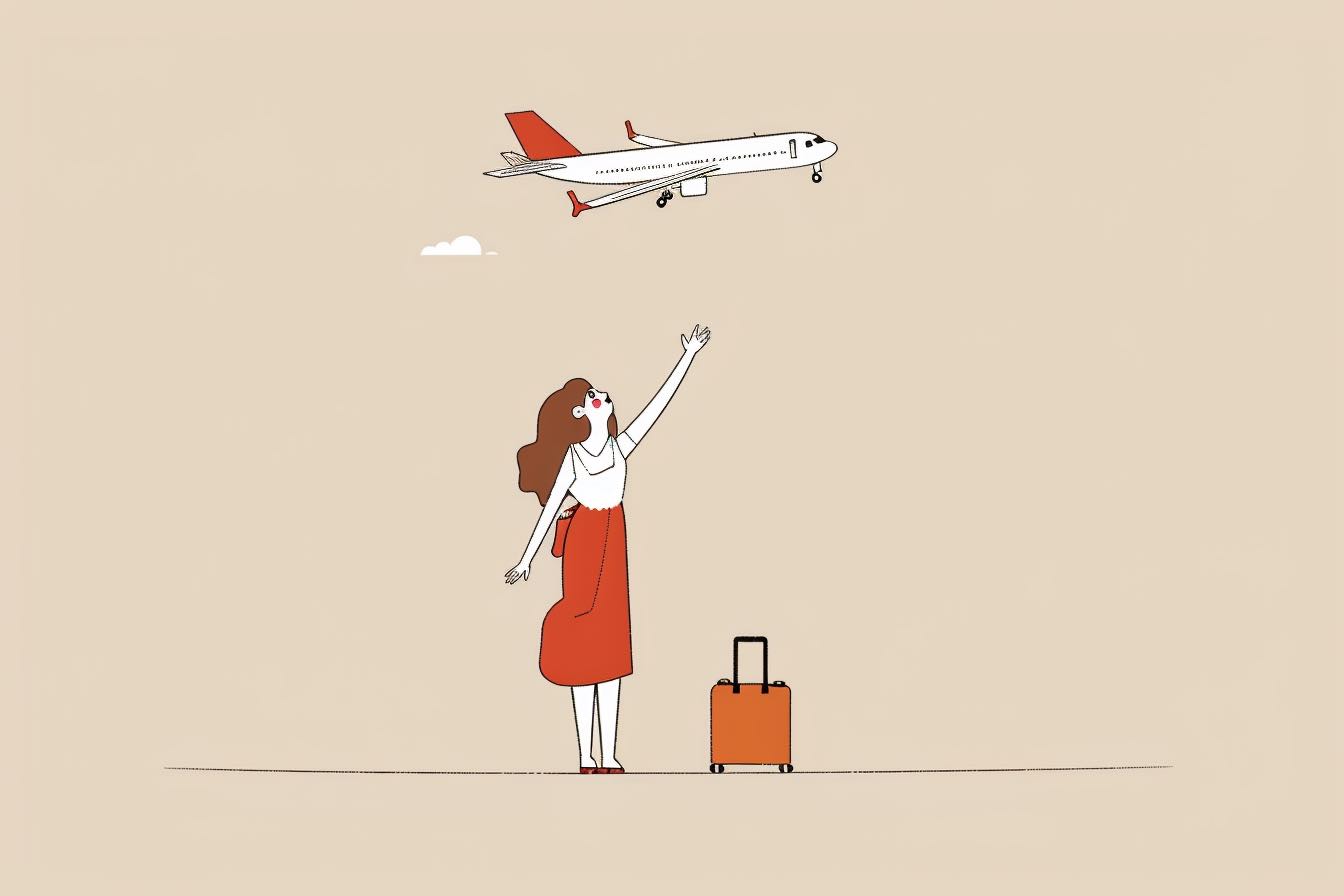When it comes to air travel, something smells bad. Really bad.
Danielle Belyeu knows. She was recently stuck next to a passenger with a strong body odor — rotting cheese and onion — on a flight from the Caribbean island of Curaçao to Miami.
“Thank goodness the flight was only a couple of hours,” says Belyeu, a travel advisor from Summerville, S.C.
As a travel professional, she came prepared: A lightly scented spray bottle of hand sanitizer held the stench at bay during the flight.
There’s a war of scents going on at 36,000 feet, and it’s escalating in ways you can’t see but will probably smell. Some passengers are treating personal hygiene as if it’s optional. Others are taking matters into their own hands by spraying unapproved scents. Airlines, meanwhile, are maintaining a double standard for smells.
Here are the airline policies for smells
It turns out airlines have rules about bad smells, but they’re problematic.
For example:
- American Airlines’ contract of carriage, the legal agreement between you and the airline, says it can refuse to transport “persons who have an offensive odor such as from a draining wound.”
- Delta Air Lines also reserves the right to refuse transportation “when the passenger’s conduct, attire, hygiene or odor creates an unreasonable risk of offense or annoyance to other passengers.”
- United Airlines has a similar provision, refusing to carry “Passengers who have or cause a malodorous condition.”
At the same time, airlines have given themselves a broad license to release their scents on the plane.
A few years ago, United reportedly began using a proprietary fragrance called Landing (orange peel, bergamot, cypress) in its cabins. Delta Air Lines perfumed its planes with Calm (lavender and chamomile). During the pandemic, airlines sprayed the cabin interiors with chemical cleaners that left some passengers with a headache. And don’t even get me started on the lungfuls of jet fuel fumes that sometimes waft through the cabin before takeoff.
Like I said, it’s a war of scents up there. (Related: Should passengers who smell bad be banned?)
Why air travel smells bad now
Reports of smelly aircraft have been in the news lately. There was that flatulent passenger on an American Airlines flight from Phoenix to Austin. One witness said it became so unbearable that the flight turned around and headed back to the gate to remove the malodorous traveler.
Last year, two Air Canada passengers were removed from a flight because they reportedly wouldn’t sit in vomit-covered seats. The airline later apologized. (Related: Everything you need to know about planning a trip in 2024.)
Many of the smells come from the cargo hold. One frequent offender is durian fruit, with its distinctive odor of honey, sewage and rotting onion. It has forced several planes to make emergency landings. Many airlines ban durian fruit despite its popularity in Asia. (Related: I travel nonstop. Here are 12 places you have to see in 2024.)
My worst odor experience happened many years ago when I flew from New York to Vienna on a Soviet-made aircraft operated by the Romanian flag carrier Tarom.
I was stuck in the back of the plane, and the moment the “no smoking” lights went out, it seemed like every passenger — including the kids — lit up at the same time. But that wasn’t the only problem. The bathrooms were directly behind me, and someone had poured a chemical that smelled like cherry and battery acid into the toilets, which started to overflow within an hour of departure.
It was a long flight.
How to fight against the smells without breaking the rules
So what should you do if you encounter a bad smell on a plane? Before you go spraying perfumes and air fresheners — which your airline might not allow — here are a few less invasive strategies.
Say something
Find someone who can help you. A flight attendant might be able to move you to a different seat or, if the flight hasn’t left yet, remove the offending smeller. “Politely tell the attendants right away,” says Jackson Groves, a frequent air traveler and adventure travel blogger. “Working together, I’m sure they can fix it or make it more bearable.”
Address the problem — politely
If the problem is a person, you may be able to negotiate a truce. “One person’s dream scent is another person’s nightmare,” says etiquette expert Nick Leighton. If you see someone spraying cologne on the seat, you may want to remind them that it’s polite to remain odor-neutral.
Improvise
That’s what Uneaka Daniels, a reading specialist from Bermuda, does when she’s sitting next to a passenger with body odor issues. She carries a white scarf with diffusing beads that contain essential oils. Technically, she’s not spraying anything. She used that strategy on a recent flight to London. “The guy next to me did not smell pleasant, and it was a six-hour flight,” she remembers.
And don’t be part of the problem. If you think you might create a smell on the plane, refrain from any activity that might stink the cabin up. That includes eating a big Italian dinner with extra garlic, Polish sausage, and durian. Definitely, avoid durian. (Here’s your insider guide to spring break travel in 2024.)
“And please do not wear perfume when you know you will board an airplane,” adds manners expert Adeodata Czink. “It bothers the people seated around you, and they can’t leave the plane.”
But is there a way to defuse this smell-a-palooza? Maybe.
When air travel smells bad, what’s the fix?
There’s a way to call a truce in the odor war on planes, but it will require some leadership from the airline industry.
It starts with creating a common-sense standard for flights and holding everyone to them. The Canadian Centre for Occupational Health and Safety offers some suggestions for creating a scent-free policy.
That means asking passengers to attend to their personal hygiene and refrain from using perfume and cologne before the flight. An airline might also issue a formal policy limiting scented products on the plane. Things like smelly aftershave, essential oils, lotions and soaps would be verboten.
Most importantly, airlines need to hold themselves to the same standard they set for passengers. In other words, no industrial cleaners in the bathroom and no signature scents called “calm,” “happy,” or “I want to sign up for your addictive loyalty program.”
Scents are a serious problem on planes. Strong body odors can literally make you vomit. Chemicals in scented products can create headaches, nausea, upper respiratory problems, and skin irritation.
It’s time for the scent war to end on the plane. Wait until you land to slather on the Chanel Bleu or douse yourself in lavender oil.
Your fellow passengers thank you in advance — and so do I.



